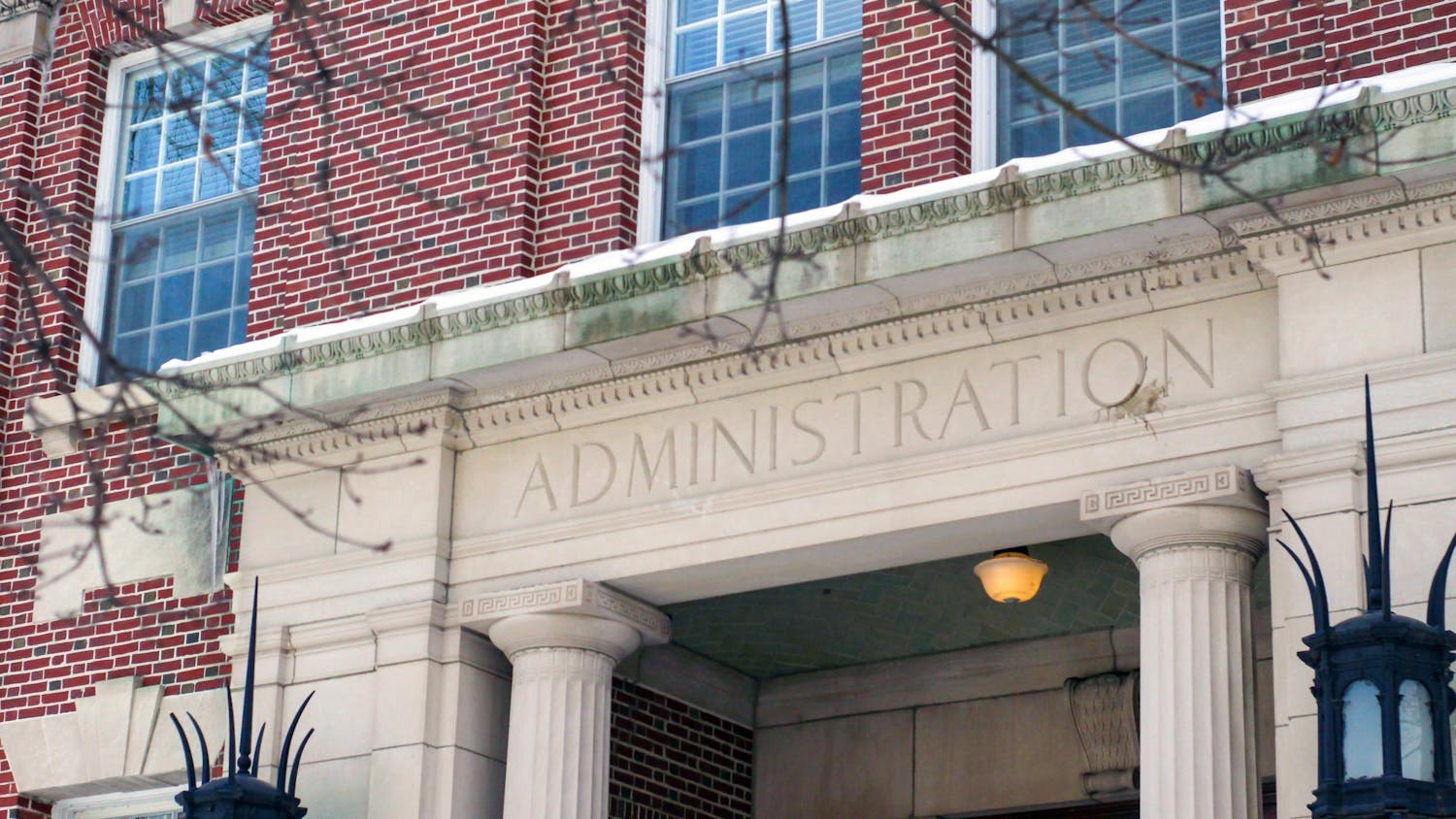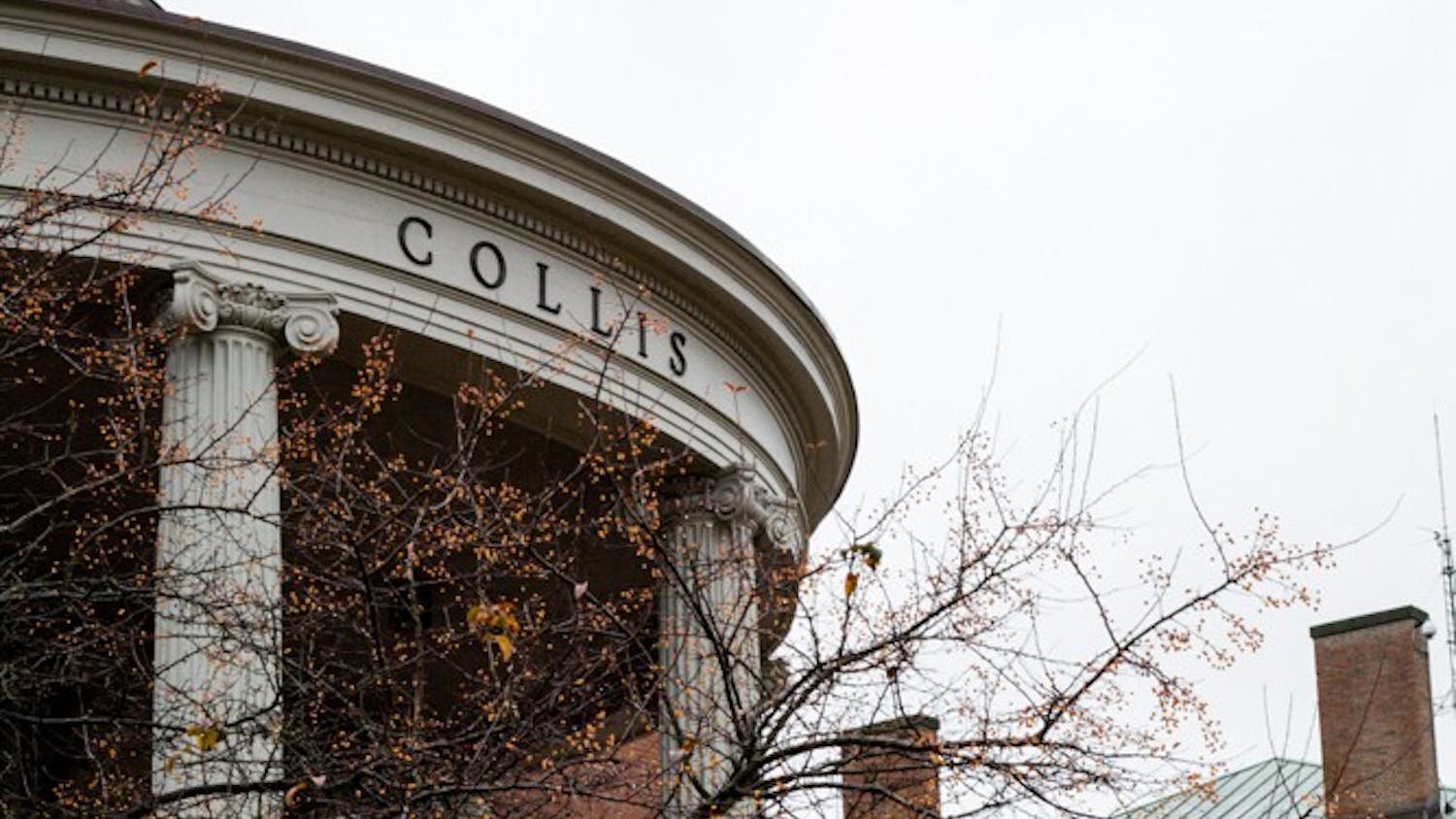For years, upon first glance Collis Cafe appeared to be what Dartmouth Alumni Magazine writer Noel Perrin once called an "environmentally minded gourmet."
Organic vegetables abounded in the salad bar, healthy food options are always on the menu and separate trash cans were available for composting. But then one stumbled upon a glaring oversight, an eco-conscious student's worst nightmare.
There was no metal silverware in Collis -- just hundreds of plastic forks, knives and spoons, all individually wrapped in even more plastic.
This all changed Monday, when Collis made available the option of real steel silverware for use, in a trial run that will last until the end of the term.
According to Collis Cafe manager Don Reed, feedback from students and staff has been very positive to this environmentally-friendly change.
Reed said that once the term is over, the silverware could be used on a more long-term basis depending on how the trial goes and on factors such as how much silverware was lost or stolen.
"It is easier to do this in the summer with 1,000 students on campus versus the fall when we will have 4,000," Reed told The Dartmouth.
This isn't the first time that Collis has tried to slowly replace plastic utensils by metal silverware.
In November 1997, Perrin reported that Collis stocked up on nearly 6,000 metal forks, knives, and spoons on April 16, 1990, which aptly fell within Earth Week.
Almost 1,000 of those metal utensils, however, were missing at the end of the day. Proving to be too costly, metal silverware was set aside for those plastic pieces of cutlery.
"I think it is good for the environment to have real silverware, but it's understandable why they'd go with plastic," Mike Giles '04 said, citing the frequent theft of metal utensils.
Sue DuBois '05, an active member of ECO and founder of Dartmouth's Vegetarian Alliance, said that many students are concerned about the waste generated from thousands of plastic utensils, so she took it upon herself to approach Reed and David Newlove of DDS about the feasibility of having actual metal utensils. DDS and Collis management agreed, as long as ECO could find outside funding.
ECO then approached the Student Assembly for the funds, to which the Assembly agreed. The actual funds allocated was approximately $150.
"Everyone had been saying it's a good idea, and I think especially because we've been looking at it as a long-term project and possibly encompassing the Hop. It's a great step," Summer Assembly President Julia Hildreth '05 said.
"It's been a long time coming, and if it goes well, then DDS will look at the costs again and keep it going," she added.
The kitchen in Collis lacks the facilities and costs to regularly wash silverware, which is why it has not proved to be a viable option in the past.
Renovated in 1994, the ware washing area below the dining room of Collis was not exactly designed to handle silverware, cups and other items, but rather the pots and utensils used to cook the food itself, Reed explained.
As for now, the only problem with the current setup is the shortage of forks, which attests to the popularity of the program thus far.
"I think it's great because it's ridiculous that we don't have more of a reusable policy, especially in Collis, where it's supposed to be an environmentally conscious place," Summer Assembly Treasurer Ralph Davies '05 said.
ECO student volunteers, under the guise of "silverware fairies," worked shifts this week to inform people of the new option and to encourage them to use the metal ware if dining within Collis and, of course, to return it.
"Out of habit, students want to go with what they were doing before, so we are making sure students take [the metalware]," fairy Erin Fifield '05 said, as she sat by the table of utensils urging students to go with the environmental option.
DuBois urged students not to steal the metalware. "If you're going to have take out, please take plastic," she said. "But if you are eating here, there's no reason to use silly plastic silverware."



